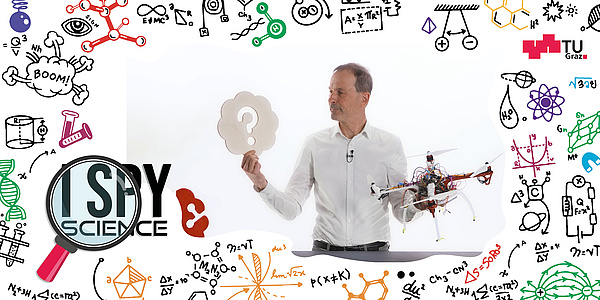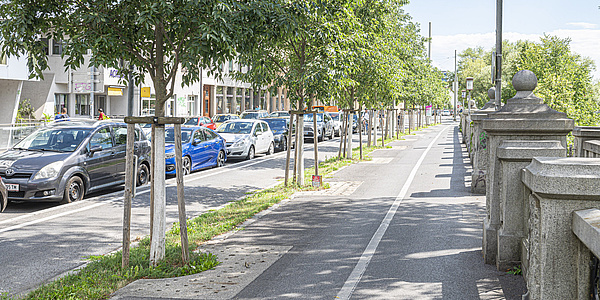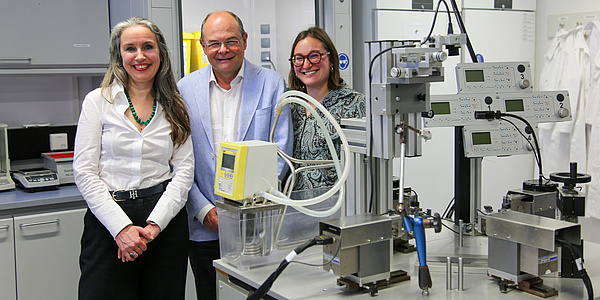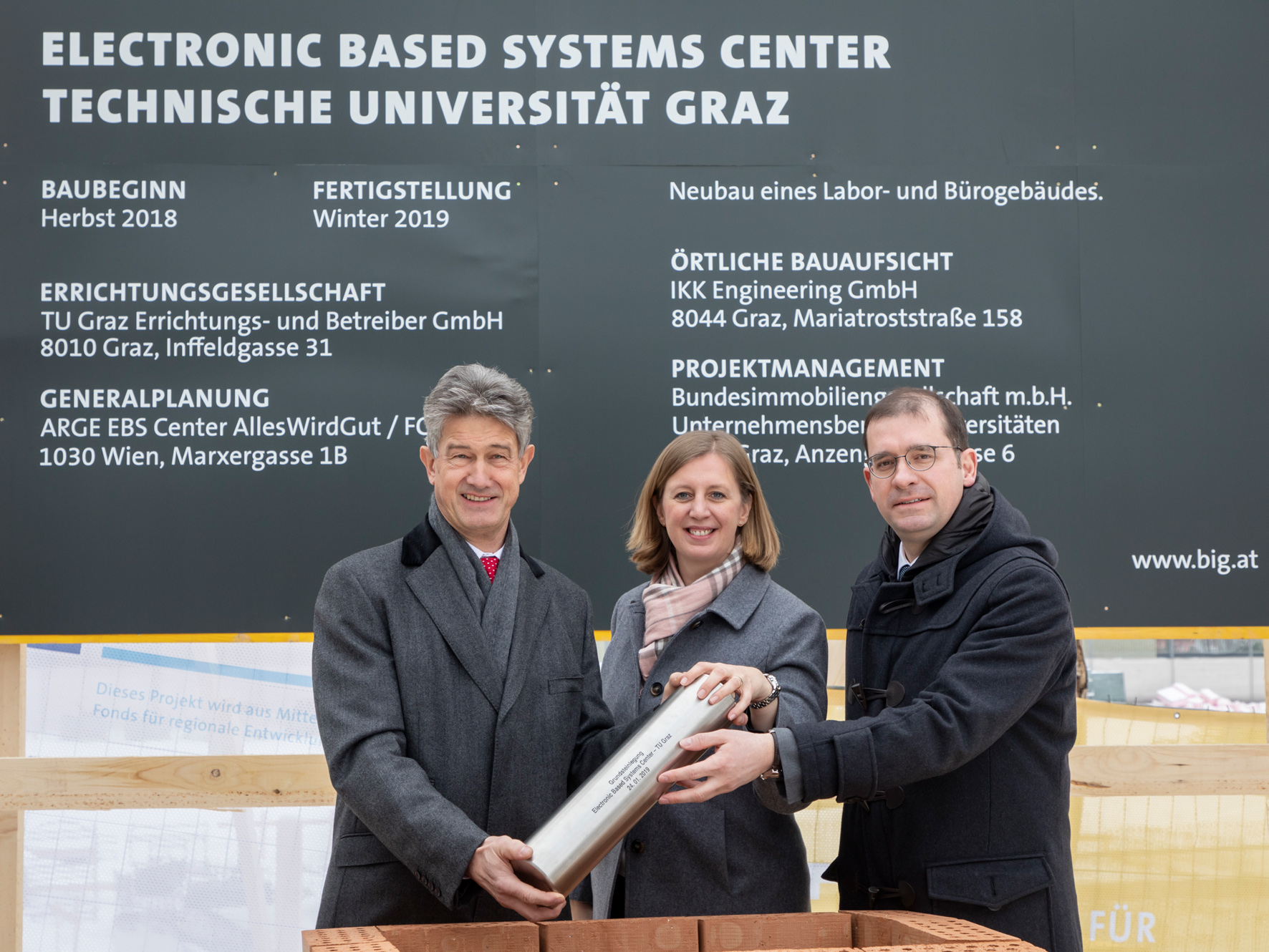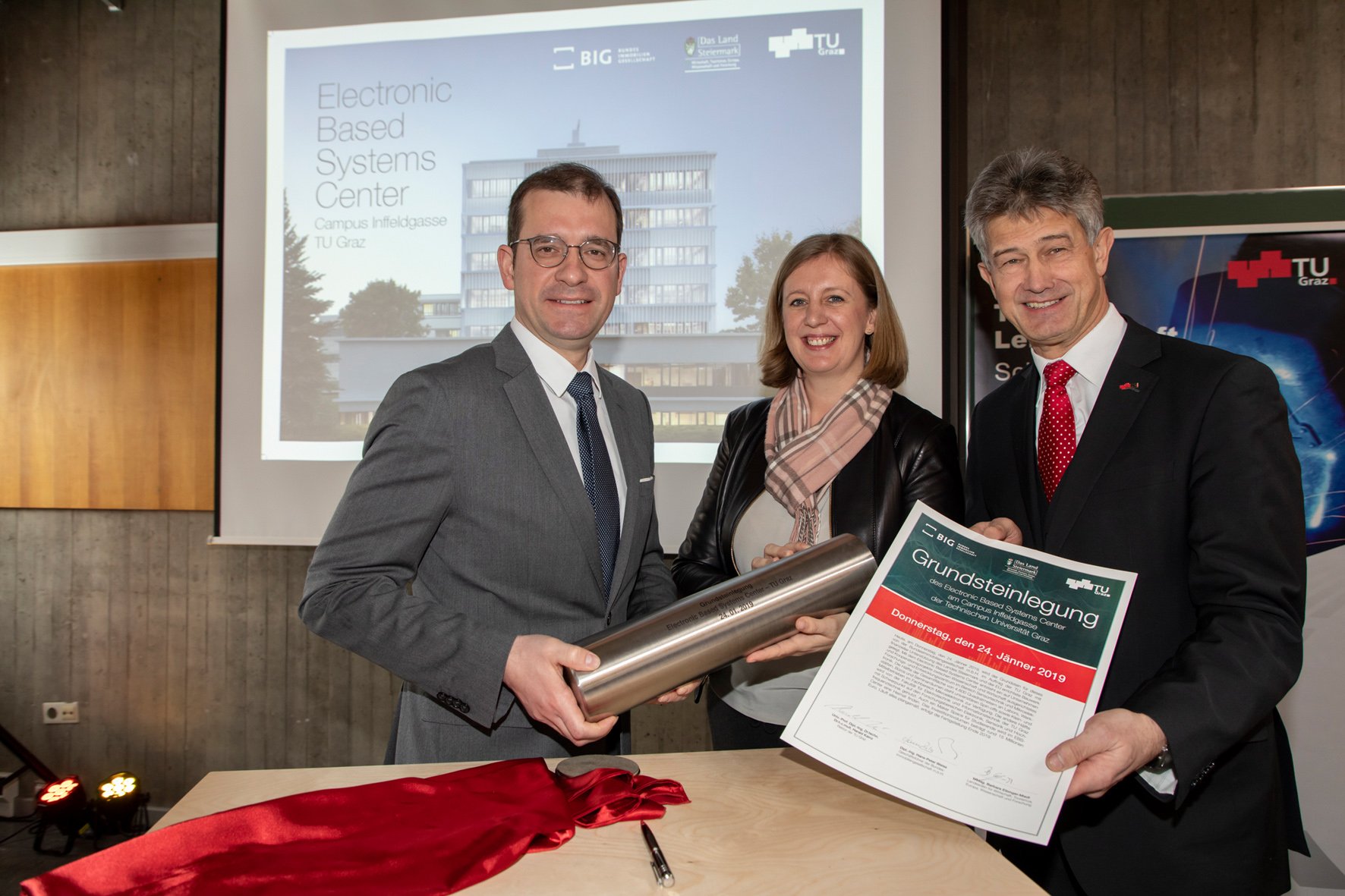Laying of the Foundation Stone for the new Research Centre at TU Graz
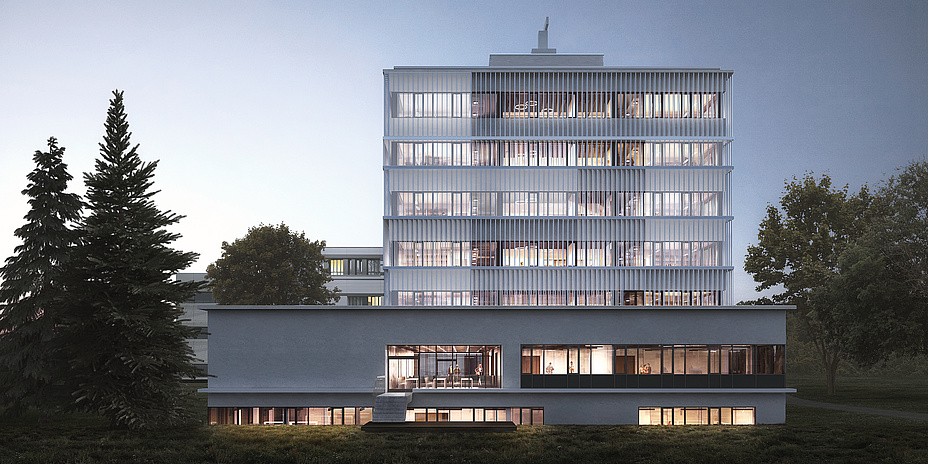
Additional pictures for download at the end of the text
Today, 24th of January 2019, the foundation stone was laid for the new building of the Electronic Based Systems Center (EBS Center) at TU Graz’s Campus Inffeldgasse, and was attended by Rector Harald Kainz, State Minister Barbara Eibinger-Miedl and Hans-Peter Weiss, managing director of Bundesimmobiliengesellschaft (BIG) The total project volume is about 15 million euros. If everything runs according to plan, the building will be completed by the end of 2019.
Space for research and cooperation with industry
The Electronic Based Systems Center is an R&D centre for the field of sensor technology and microelectronics. It is aimed at companies and cooperation projects between science and industry. The overall area of the seven-story building totals 4,600 square metres and comprises laboratories, workshops, offices and seminar rooms. Half of it is available for university spin-offs as well as small and medium-sized businesses in the field of microelectronics. The other half will be used by the Faculty of Electrical Engineering and Information Technology of TU Graz with focus on the research areas of electronics, sensor systems and high-frequency technology. A maker space for students will also be accommodated in the EBS Center. This is the first time that TU Graz, the State of Styria and BIG have cooperated in the construction of a building in order to enable research cooperations with industry in the microelectronics field of the future in one place.
‘In a unique close alliance between TU Graz, the State of Styria and BIG, the Electronic Based Systems Center will be a visible beacon of our strategic research core area of Information, Communication and Computing. The building will serve as a home for scientific research and future-oriented cooperations with industry and will strengthen the location as an international research centre for electronics-based systems,’ says Harald Kainz, Rector of TU Graz.
‘Microelectronics is the key technology of digitalisation. Some 80 percent of Austria-wide added value in this area is obtained in Styria and Carinthia. In addition to the new Silicon Austria Labs microelectronics research centre, whose provisional headquarters will also be located in this building, the Electronic Based Systems Center will provide an important basis for cooperation projects in science and industry,’ says a delighted Barbara Eibinger-Miedl, provincial minister for industry, tourism, Europe, science and research.
‘In the form of the Electronic Based Systems Center, BIG is not only building high-quality research and institutional space, but also a new land mark in the western part of Campus Inffeldgasse. Together with TU Graz, we will successively modernise and expand the area over the next few years so that it becomes a vibrant city district with the best research infrastructure,’ says Hans-Peter Weiss, managing director of Bundesimmobiliengesellschaft.
Laboratories in a green environment
The new building of the EBS Center consists of a research zone on the basement and ground floors and an office zone on the upper floors. The entrance is on the east side. An inviting foyer leads to a generous, glazed seminar room with direct access to the green area. Next to the seminar room are several laboratories located directly on the ground floor. There are more laboratories including storage and technology areas in the basement. The upper floors are primarily reserved for offices, but also include meeting rooms and common rooms as well as smaller labs. The first upper floor has an impressive 70-square-metre west-facing terrace.
Flexibility and short distances
The rooms in the new EBS Center are grouped in a U-shape around the central conjoining space with staircase, lift, sanitary facilities and adjoining rooms. This design makes for short distances and a simple orientation as well as a high degree of spatial flexibility. To protect against overheating in summer, external vertical slats are attached to the windowsills of the office floors. For sustainable heating using geothermal energy in winter and for cooling in the summer, 16 geothermal probes were drilled 150 metres into the ground. The plans for the new building of the EBS Center originate from ARGE EBS Center AllesWirdGut / FCP Fritsch Ciari & Partner ZT.
The research areas of microelectronics and sensor technology are anchored in the Field of Expertise "Information, Communication and Computing", one of five strategic research FoE of TU Graz.
Kontakt
Barbara GIGLER, press officer of TU Graz
+43 664 608736006 | barbara.gigler@tugraz.at
Ernst EICHINGER, press officer Bundesimmobiliengesellschaft
+43 5 0244 1350 | +43 664 807451350
ernst.eichinger@big.at
Markus POLESCHINSKI, press officer
Office of State Minister Barbara Eibinger-Miedl
+43 316 877 4515 | markus.poleschinski@stmk.gv.at
